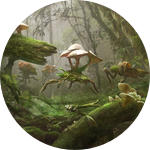About This Project
Surveying Oregon kelp populations from an ecotoxicological perspective provides insight into both biotic and abiotic factors that influence the health of kelp and the mechanisms which they adapt to processing. We set out to measure and examine toxins along the Oregon coast, specifically looking to understand toxicity and determine detoxification pathways of both giant and bull kelp.
Ask the Scientists
Join The DiscussionWhat is the context of this research?
What toxins are present in, around Kelp forests? (in the water, in kelp)
What are major factors of environmental impact? (biotic and abiotic factors)
How does kelp metabolize these toxins? How long does it take?
What are the major differences between areas in Oregon?
Hypothesis:
Oregon’s coast will exhibit diversity in ecotoxicological studies of kelp populations relative to geographical, biotic and abiotic factors.
Null Hypothesis:
Oregon coast will not exhibit diversity in ecotoxicological studies of kelp populations.
What is the significance of this project?
Kelp forests are an essential, biodiverse ecosystem. Yet, with as many organisms a kelp forest holds, it also has the unfortunate ability to retain a variety of toxins. Many of these toxins can be harmful to other species, and detrimental to the survival of the kelp forests.
It is important to assess kelp toxicity levels, effects, and factors.
Like other organisms, plant species have different mechanisms of uptake, toxicity, and detoxification in order to counter harmful environmental effects.
This ecotoxicological survey of Oregon kelp populations will assess the current health of kelp, as well as the mechanisms and effectiveness by which kelp may process or remove toxic pollutants.
What are the goals of the project?
Our goal is to examine toxicity comparatively across kelp populations along the Oregon Coast, as we dive deeper into the issue of toxin retention in kelp forests.
These ecotoxicological surveys aim to provide insight into biotic and abiotic factors influencing the current health of kelp forests, as well as the potential kelp adaptions and mechanisms that are necessary to tolerate these environmental stresses.
Understanding the diversity of toxins in the environment is crucial for the health of these, and other, populations. A follow up experiment will attempt to document and determine the metabolism of the exogenous toxins which may be found in kelp environments.
Budget
Our budget will allow us to obtain the specimens from the ocean with specialized equipment.
Not included in our budget is our borrowing space at OIMB for our research. Hopefully as students, we will be able to use lab space for free (or it can be covered in our "unexpected costs" category).
 Project Timeline
Project Timeline
Ideally, our timeline would last at least 30 days for collection, housing, and assessment of toxins. The first half of the experiment would be dedicated to collection, housing of living kelp, and toxicological analysis. The latter half of the experiment would be spent studying the detoxification processes of the kelp plants concerning the previously identified toxins. We will spend any remaining time compiling data and analyzing results via statistical inference.
Jun 19, 2018
Kelp Collection
Jun 20, 2018
Housing of Kelp
Jun 23, 2018
Assays
Jun 30, 2018
Metabolic Tracking
Jul 04, 2018
Result Assessment
Meet the Team
Team Bio
A team of individuals in BI 357: Marine Biology at the University of Oregon who set out to survey diversity in toxins along the Oregon coast and to understand the metabolic mechanisms that effect species health and allow plants to adapt to their environment.
Heather Bohn
An undergraduate environmental science major at University Of Oregon. Interested in global ecosystem health and evolution research. Interested in botany, mycology, ecology, climatology, and conservation sciences.
Kevin Zumwalt
A undergraduate biology major at the University of Oregon. Interested in the coastal ecosystem health as well as metallochemical metabolism by kelp. Interested in metabolism, regeneration science, aging and neuroscience.
Amelia Delgado
An undergraduate Biological Anthropology and Biology student with an interest in primate and avian osteology, marine science, and zoology.
Project Backers
- 0Backers
- 0%Funded
- $0Total Donations
- $0Average Donation


